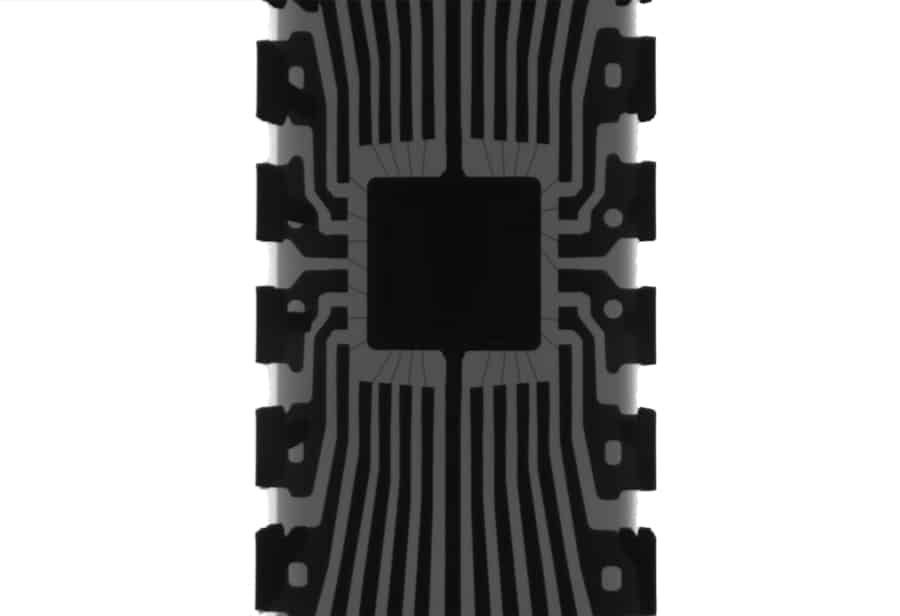Quantum computing represents a paradigm shift in the realm of computation, harnessing the principles of quantum mechanics to process information in fundamentally different ways than classical computers. While traditional computers rely on bits as the smallest unit of data, which can exist in a state of either 0 or 1, quantum computers utilise quantum bits or qubits. These qubits can exist in multiple states simultaneously due to the phenomenon known as superposition.
This ability allows quantum computers to perform complex calculations at speeds unattainable by their classical counterparts. The potential applications of quantum computing are vast and varied, spanning fields such as cryptography, material science, and artificial intelligence. As researchers continue to explore the capabilities of quantum systems, the implications for industries and society at large are profound.
The promise of solving problems that are currently intractable for classical computers has ignited significant interest and investment in quantum technologies, leading to a race among tech giants and startups alike to develop practical quantum solutions.
Summary
- Quantum computing harnesses the principles of quantum mechanics to process and store information in a fundamentally different way from classical computing.
- Quantum bits, or qubits, are the basic units of quantum information and can exist in multiple states simultaneously, enabling parallel processing and exponential computational power.
- Quantum gates manipulate qubits to perform operations, and quantum circuits are networks of interconnected gates that execute quantum algorithms.
- Quantum algorithms leverage quantum parallelism to solve complex problems more efficiently than classical algorithms, with potential applications in cryptography and cybersecurity.
- Quantum computing has the potential to revolutionize fields such as chemistry, material science, machine learning, and artificial intelligence, but faces challenges in scalability and error correction for practical implementation.
Quantum Mechanics and Quantum Bits (Qubits)
At the heart of quantum computing lies quantum mechanics, a branch of physics that describes the behaviour of matter and energy at the smallest scales. Unlike classical physics, which operates under deterministic laws, quantum mechanics introduces concepts such as superposition and entanglement. Superposition allows qubits to exist in multiple states at once, meaning a single qubit can represent both 0 and 1 simultaneously.
This property exponentially increases the computational power of quantum systems as more qubits are added. Entanglement is another critical feature of quantum mechanics that plays a vital role in quantum computing. When qubits become entangled, the state of one qubit becomes dependent on the state of another, regardless of the distance separating them.
This interconnectedness enables quantum computers to perform complex operations more efficiently than classical systems. For instance, a system of entangled qubits can process vast amounts of data simultaneously, making it possible to solve problems that would take classical computers an impractical amount of time.
Quantum Gates and Quantum Circuits

Quantum gates are the building blocks of quantum circuits, analogous to classical logic gates used in traditional computing. However, while classical gates manipulate bits in a binary fashion, quantum gates operate on qubits and exploit their unique properties. Quantum gates can perform operations that change the probabilities associated with a qubit’s state, allowing for intricate manipulations that are not possible with classical gates.
A quantum circuit is a sequence of quantum gates applied to a set of qubits. The design of these circuits is crucial for implementing quantum algorithms effectively. For example, the Hadamard gate creates superposition by transforming a qubit from a definite state into an equal probability of being measured as either 0 or 1.
Other gates, such as the CNOT (controlled NOT) gate, facilitate entanglement between qubits. By carefully orchestrating these gates within a circuit, quantum algorithms can be executed to achieve desired outcomes, such as factoring large numbers or searching unsorted databases.
Quantum Algorithms and Quantum Parallelism
Quantum algorithms leverage the unique properties of qubits to perform computations more efficiently than classical algorithms. One of the most famous examples is Shor’s algorithm, which can factor large integers exponentially faster than the best-known classical algorithms. This capability poses significant implications for cryptography, particularly for systems relying on the difficulty of factoring large numbers for security.
Another notable algorithm is Grover’s algorithm, which provides a quadratic speedup for unstructured search problems. In classical computing, searching through an unsorted database requires O(N) time complexity, where N is the number of entries. Grover’s algorithm reduces this to O(√N), showcasing how quantum parallelism allows multiple possibilities to be explored simultaneously.
This parallelism is a direct consequence of superposition and entanglement, enabling quantum computers to tackle problems that would otherwise be computationally prohibitive.
Quantum Computing in Cryptography and Cybersecurity
The intersection of quantum computing and cryptography is one of the most discussed areas within this field. Classical encryption methods, such as RSA and ECC (Elliptic Curve Cryptography), rely on the difficulty of certain mathematical problems for their security. However, with the advent of powerful quantum algorithms like Shor’s algorithm, these encryption methods could be rendered obsolete.
The ability of quantum computers to factor large integers efficiently poses a significant threat to current cryptographic systems. In response to this potential vulnerability, researchers are actively developing post-quantum cryptography—cryptographic algorithms designed to be secure against both classical and quantum attacks. These new algorithms often rely on mathematical problems that remain difficult even for quantum computers, such as lattice-based problems or hash-based signatures.
The transition to post-quantum cryptography is crucial for ensuring data security in a future where quantum computing becomes mainstream.
Quantum Computing in Chemistry and Material Science

Quantum computing holds immense promise for advancing our understanding of chemistry and material science. Traditional computational methods often struggle with simulating complex molecular interactions due to the exponential scaling of calculations required as systems grow larger. Quantum computers, with their ability to represent and manipulate quantum states directly, can model molecular structures and reactions more accurately and efficiently.
For instance, simulating the behaviour of electrons in molecules is a task that becomes increasingly complex with larger systems. Quantum computers can perform these simulations by leveraging their inherent properties, potentially leading to breakthroughs in drug discovery and materials design. Companies like D-Wave and IBM are already exploring applications in this domain, aiming to develop new materials with tailored properties or discover novel pharmaceuticals by simulating molecular interactions at an unprecedented scale.
Quantum Computing in Machine Learning and Artificial Intelligence
The integration of quantum computing into machine learning (ML) and artificial intelligence (AI) presents exciting opportunities for enhancing computational capabilities in these fields. Classical machine learning algorithms often require substantial computational resources for training models on large datasets. Quantum machine learning seeks to exploit the advantages of quantum systems to accelerate these processes.
One approach involves using quantum algorithms for data classification or clustering tasks. For example, quantum support vector machines can potentially outperform their classical counterparts by leveraging quantum parallelism to explore multiple solutions simultaneously. Additionally, quantum neural networks are being researched as a means to create more efficient models that could learn from data faster than traditional neural networks.
Moreover, the ability of quantum computers to handle high-dimensional data spaces could lead to improved performance in tasks such as pattern recognition or natural language processing. As researchers continue to explore these intersections between quantum computing and AI, we may witness significant advancements that reshape how machines learn from data.
Challenges and Future of Quantum Computing
Despite its immense potential, quantum computing faces several challenges that must be addressed before it can achieve widespread practical application. One major hurdle is maintaining qubit coherence; qubits are highly susceptible to environmental noise and interference, which can lead to errors in computations. Developing error correction techniques and stabilising qubit states are critical areas of ongoing research.
Additionally, scaling up quantum systems remains a significant challenge. Current quantum computers have a limited number of qubits, which restricts their computational power. Researchers are exploring various architectures and technologies—such as superconducting qubits or trapped ions—to create larger and more stable systems capable of performing meaningful computations.
The future of quantum computing is undoubtedly promising but requires continued investment in research and development. As advancements are made in hardware, algorithms, and error correction techniques, we may soon witness practical applications that transform industries ranging from finance to healthcare. The journey towards realising the full potential of quantum computing is ongoing, with each breakthrough bringing us closer to a new era of computation that could redefine our understanding of technology itself.
For small businesses looking to leverage local intent in Google searches, understanding the key concepts and applications of quantum computing can provide a competitive edge. According to a recent article on businesscasestudies.co.uk, nearly half of Google searches have local intent, making it crucial for businesses to optimise their online presence. By implementing continuous improvement strategies in operations, businesses can streamline processes and better serve their local customer base. Additionally, brands simplifying travel experiences are expanding their horizons and reaching new markets, showcasing the importance of innovation in today’s competitive landscape as discussed in another article on businesscasestudies.co.uk.
FAQs
What is quantum computing?
Quantum computing is a type of computing that takes advantage of the strange ability of subatomic particles to exist in more than one state at any time. This allows quantum computers to process and store information in a way that is fundamentally different from classical computers.
How does quantum computing differ from classical computing?
Classical computers use bits to process and store information, with each bit representing either a 0 or a 1. Quantum computers, on the other hand, use quantum bits or qubits, which can represent both 0 and 1 simultaneously due to the principles of quantum mechanics.
What are the key concepts of quantum computing?
Key concepts of quantum computing include superposition, entanglement, and quantum interference. Superposition allows qubits to exist in multiple states at once, entanglement links the state of one qubit to the state of another, and quantum interference enables qubits to interact with each other to produce the correct output.
What are the potential applications of quantum computing?
Quantum computing has the potential to revolutionize fields such as cryptography, drug discovery, material science, and optimization problems. It could also lead to breakthroughs in artificial intelligence, weather forecasting, and financial modelling.
What are the current challenges in quantum computing?
Some of the current challenges in quantum computing include maintaining the stability of qubits, reducing error rates, and scaling up the number of qubits in a quantum computer. Additionally, developing practical quantum algorithms and error correction methods are also areas of active research.
